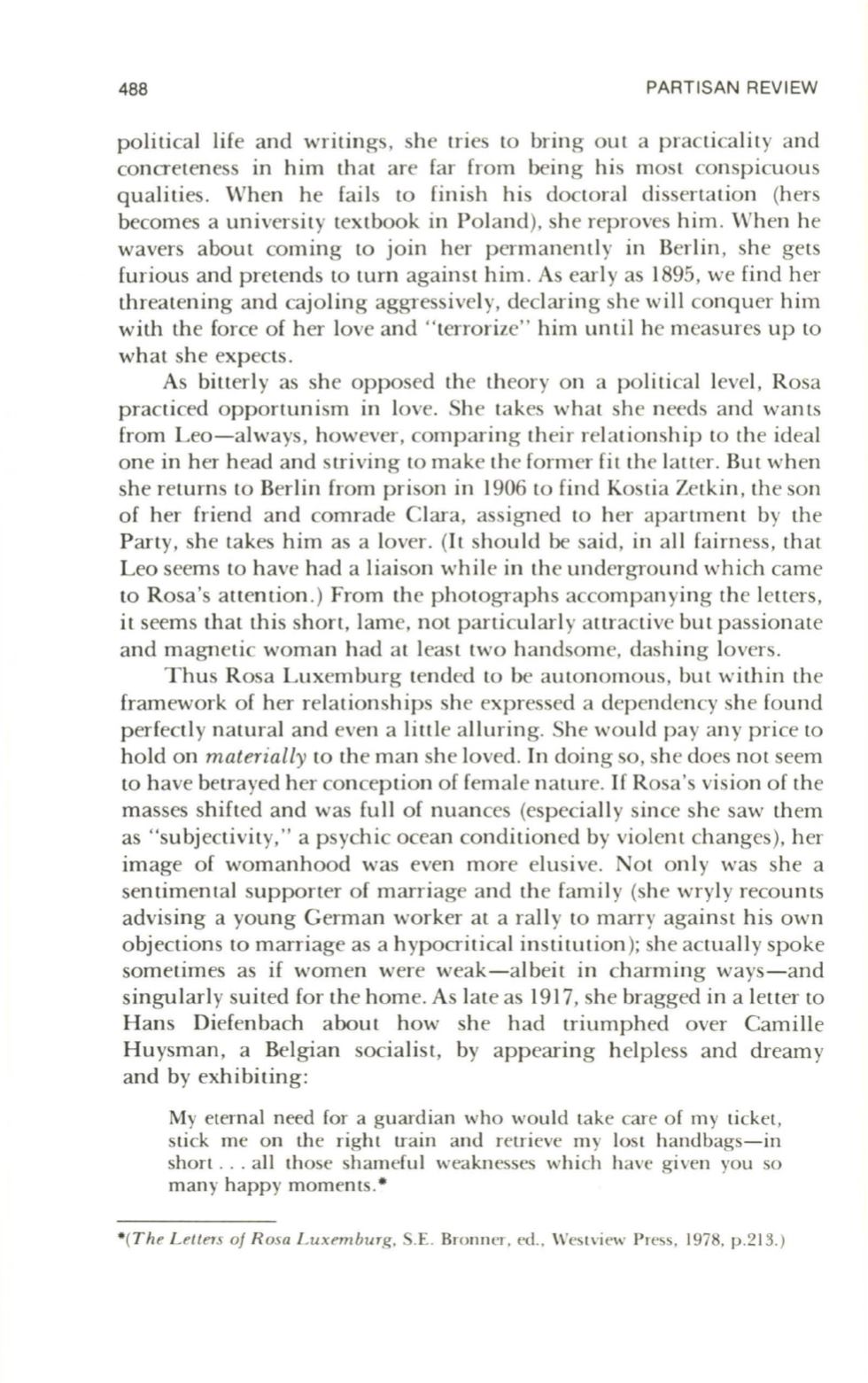
488
PARTISAN REVIEW
political life and wntmgs, she tries to bring out a practicality and
concreteness in him that are far from being his most conspicuous
qualities . When he fails to finish his doctoral dissertation (hers
becomes a university textbook in Poland), she reproves him . When he
wavers about coming to join her permanently in Berlin, she gets
furious and pretends
to
turn against him. As early as 1895, we find her
threatening and cajoling aggressively, declaring she will conquer him
with the force of her love and "terrorize" him until he measures up to
what she expects.
As bitterly as she opposed the theory on a political level, Rosa
practiced opportunism in love. She takes what she needs and wants
from Leo-always, however, comparing their relationship to the ideal
one in her head and striving to make the former fit the latter. But when
she returns to Berlin from prison in 1906 to find Kostia Zetkin, the son
of her friend and comrade Clara, assigned
to
her apartment by the
Party, she takes him as a lover. (It shou ld
be
said, in all fairness, that
Leo seems to have had a liaison while in the underground which came
to
Rosa's attention.) From the photographs accompanying the letters,
it seems that this short, lame, not particularly attractive but passionate
and magnetic woman had at least two handsome, dashing lovers.
Thus Rosa Luxemburg tended to be autonomous, but within the
framework of her relationships she expressed a dependency she found
perfectly natural and even a little alluring. She would pay any price to
hold on
materially
to
the man she loved.
In
doing so, she does not seem
to
have betrayed her conception of female nature.
If
Rosa's vision of the
masses shifted and was full of nuances (especia ll y since she saw them
as "subjectivity," a psychic ocean conditioned by violent changes), her
image of womanhood was even more elusive. Not on ly was she a
sentimental supporter of marriage and the family (she wryly recounts
advising a young German worker at a rally to marry against his own
objections to marriage as a hypocritical institution); she actually spoke
sometimes as if women were weak-albeit in charming ways - and
singularly suited for the home. As late as 1917, she bragged in a letter to
Hans Diefenbach about how she had triumphed over Camille
Huysman, a Belgian socialist, by appearing helpless and dreamy
and by exhibiting:
My eternal need for a guardian who would take care of my ticket,
stick me on the right train and retrieve my lost handbags-in
shan .. . all those shameful weaknesses which have given you so
many happy moments.·
·(The Letters of Rosa Luxemburg,
S.E. Bronner, ed., Westview Press, 1978, p.213. )


